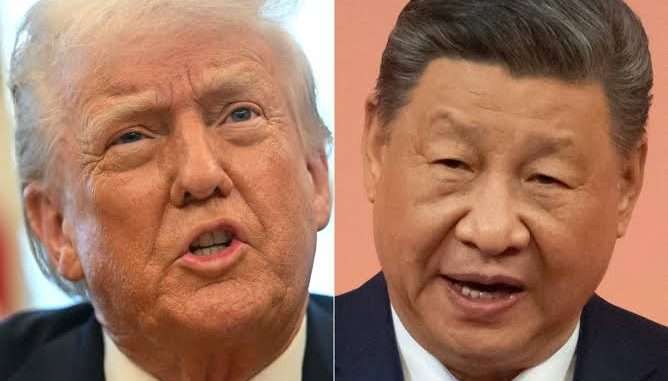
The United States President Donald Trump suspends parcels from China as tariff war rages
The United States Postal Service (USPS) announced that it will temporarily stop the receive of parcels from mainland China and Hong Kong.
According to the USPS official website, this suspension does not affect letters. The halt on parcel shipments will take effect immediately and remain in place “until further notice.” USPS has not given a specific reason for suspending incoming parcels, though the move is part of broader tariffs introduced by former President Donald Trump.
These tariffs include a wide-ranging tax on imports and the removal of the de minimis duty-free exemption for low-value packages.
A good response should highlight the impact on consumers, specifically those purchasing from large online retailers like Amazon, and provide context around the statistics of parcels entering the US from China.
It should also emphasize the importance of the de minimis exemption in facilitating these imports.
One potential approach could be to focus on the significance of the suspension for consumers and retailers, while tying the statistic from the Congressional report to the broader impact.
Here’s a revised version: The suspension is expected to have a major impact on consumer purchases from large online retailers, including Amazon.
In fact, a 2023 report from the US Congressional Committee on China found that nearly half of all parcels entering the US under the de minimis exemption came from China.
This highlights how central Chinese imports have been to the flow of low-cost goods, which may now face delays or additional hurdles.
US authorities have expressed concerns that the large volume of parcels entering the country under the de minimis exemption has made it harder to conduct thorough screenings, potentially allowing illegal goods to go undetected.
The de minimis rule permits low-value imports to bypass customs duties and standard screening processes.
In the US, shipments valued under $800 are eligible for duty-free entry when sent directly to consumers.
A recent executive order by Donald Trump has abolished the de minimis exemption, meaning goods valued at $800 (£641) or less will now be subject to duties and taxes.
The so-called “de minimis” tax loophole had faced increasing scrutiny, particularly as Chinese e-commerce platforms like Shein and Temu used it extensively to reach US customers.
On Wednesday, China expressed its “resolute opposition” to US tariffs on its exports, urging “dialogue” to address the trade disputes.
“China expresses strong dissatisfaction and resolute opposition,” said foreign ministry spokesman Lin Jian. Donald Trump has stated that he is in no rush to speak with China’s President Xi Jinping following the escalation of tit-for-tat tariffs between the two nations.
On Tuesday, shortly after new 10% tariffs on Chinese goods took effect, Beijing retaliated by imposing tariffs on US energy, vehicles, and equipment. Starting February 10, coal and liquefied natural gas (LNG) will face a 15% tariff, while crude oil, agricultural machinery, and large-engine cars will incur a 10% levy.
In addition, China announced plans to investigate Google and the US fashion conglomerate that owns Tommy Hilfiger and Calvin Klein. Earlier, Trump had delayed proposed tariffs on Mexico and Canada for a month after both countries agreed to take stronger action against the flow of fentanyl and undocumented migrants into the US.
While Trump had previously suggested talks with Xi could happen soon, he told reporters at the White House on Tuesday afternoon that he was in “no rush” to engage in discussions.
